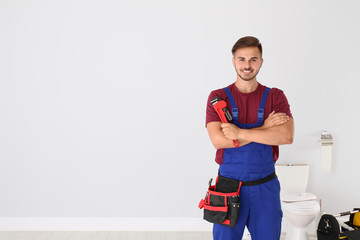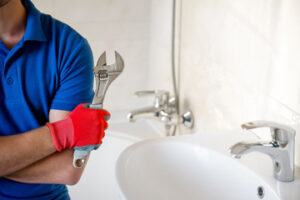Plumber Plano TX plays a crucial role in maintaining the proper function of water systems. They are trained to handle a variety of plumbing issues, from leaks to complex pipe installations. A well-maintained plumbing system ensures a steady flow of water and waste disposal. Professional plumbers have the skills and tools to address any issue effectively.
A leaking faucet may seem minor, but it can lead to water wastage and higher bills over time. Plumbers can identify the cause of the leak and repair it quickly. Fixing leaks preserves water and prevents damage to fixtures. Small problems addressed early help avoid costly repairs.
Clogged drains can cause slow water flow and unpleasant odors. A plumber uses specialized equipment to clear blockages without damaging the pipes. Restoring proper drainage prevents backups and overflows. Regular maintenance helps keep the system functioning smoothly.
Low water pressure can disrupt daily activities like showering and washing dishes. It can be caused by sediment buildup, pipe corrosion, or hidden leaks. A plumber can diagnose the cause and restore proper water pressure. Fixing low pressure improves comfort and efficiency.
Burst pipes can cause significant water damage if not addressed quickly. A plumber can locate the damaged pipe and replace or repair it immediately. Fast action helps prevent structural damage and mold growth. Protecting the foundation of the property reduces long-term repair costs.
Sewer line issues require immediate attention to avoid contamination and health risks. Plumbers use cameras and other tools to locate the blockage or damage. Fixing the sewer line ensures proper waste disposal and prevents backups. A well-maintained sewer system protects the environment and the property.
Installing new plumbing fixtures requires expertise and precision. A professional plumber ensures that connections are secure and leak-free. Proper installation improves efficiency and extends the lifespan of the fixture. Skilled work helps avoid future issues and reduces maintenance costs.
Water heaters are essential for hot water supply in homes and businesses. A malfunctioning water heater can disrupt daily routines and increase energy costs. Plumbers can repair or replace faulty water heaters efficiently. Regular maintenance improves performance and extends the lifespan of the unit.
Running toilets can waste significant amounts of water if not fixed. A plumber can identify and repair faulty components inside the tank. Fixing a running toilet reduces water bills and conserves water. Properly functioning toilets improve household efficiency.
Pipe corrosion can lead to leaks and water contamination over time. Plumbers can assess the condition of the pipes and recommend replacement or repair. Addressing corrosion early prevents major leaks and improves water quality. Clean and safe water is essential for health and safety.
Hidden leaks behind walls or under floors can be hard to detect. Plumbers use advanced tools to locate and repair these leaks before they cause damage. Early detection helps prevent mold growth and structural weakening. Fixing hidden leaks preserves the integrity of the property.
Gas line issues are dangerous and require immediate attention. A plumber can detect and repair gas leaks safely and efficiently. Proper gas line maintenance ensures the safety of the household. Professional handling reduces the risk of gas-related accidents.
Water filtration systems improve the quality of drinking water. Plumbers can install and maintain these systems to ensure optimal performance. Clean water enhances health and reduces reliance on bottled water. Proper filtration protects appliances from mineral buildup.
Irrigation systems help maintain healthy landscaping, but leaks and blockages can reduce efficiency. Plumbers can repair damaged pipes and adjust settings for optimal watering. A properly functioning irrigation system conserves water and keeps the landscape healthy. Efficient watering reduces water waste and supports plant growth.
Sump pumps prevent basement flooding by redirecting water away from the foundation. Plumbers can install and maintain sump pumps to ensure they function properly. Regular maintenance helps the pump operate efficiently during heavy rain. Preventing basement flooding protects the property from water damage.
Bathroom and kitchen renovations often involve complex plumbing work. Plumbers handle the installation of sinks, faucets, and appliances with precision. Proper installation ensures that water flows correctly and prevents leaks. Professional work enhances the functionality and appearance of the space.
Tree roots can invade underground pipes and cause blockages or damage. Plumbers use cutting tools and cameras to remove roots and repair affected pipes. Preventing root intrusion maintains the flow of water and waste. Regular inspections help catch root problems early.
Hard water can cause mineral buildup in pipes and appliances. Plumbers can install water softeners to reduce hardness and prevent scaling. Softened water improves appliance performance and extends their lifespan. Reducing mineral buildup keeps water systems running smoothly.
Frozen pipes can crack or burst if left untreated. A plumber can thaw frozen pipes and reinforce them to prevent future freezing. Protecting pipes from freezing reduces the risk of costly water damage. Insulated pipes function better in extreme weather conditions.
Ceiling leaks often result from hidden plumbing issues. A plumber can trace the source of the leak and repair it promptly. Fixing ceiling leaks prevents mold growth and structural weakening. Quick action preserves the integrity of the building.
Commercial plumbing systems are more complex than residential ones. Plumbers who specialize in commercial systems can handle large-scale installations and repairs. Maintaining commercial plumbing systems ensures consistent water flow and waste disposal. Proper maintenance reduces operational disruptions and repair costs.
Preventative maintenance helps avoid unexpected plumbing issues. Plumbers can perform routine inspections and address minor issues before they worsen. Regular maintenance extends the lifespan of pipes and fixtures. Proactive care reduces the risk of costly emergency repairs.
Smart plumbing technology is becoming more common in modern homes and businesses. Plumbers can install smart water meters and leak detection systems. These systems provide real-time data and alerts for potential issues. Smart technology improves water efficiency and reduces waste.
Rental properties require consistent plumbing maintenance to satisfy tenants. Plumbers can respond quickly to repair requests and prevent major problems. Well-maintained plumbing systems enhance tenant satisfaction and reduce turnover. Reliable plumbing increases the value of the property.
Emergency plumbing services are essential for urgent issues like burst pipes or sewer backups. Professional plumbers provide 24/7 emergency service to prevent further damage. Fast response minimizes repair costs and protects the property. Reliable emergency service gives property owners peace of mind.
Plumbers follow safety codes and regulations to ensure quality and compliance. Licensed plumbers have the training and experience to meet industry standards. Professional work ensures that the plumbing system operates efficiently and safely. Code-compliant installations increase the property’s value and reliability.
Effective communication between plumbers and clients ensures smooth service. A good plumber explains the issue and the solution clearly. They provide updates and answer questions throughout the process. Transparency builds trust and confidence in the service.
Eco-friendly plumbing options help reduce water and energy consumption. Plumbers can install low-flow fixtures and energy-efficient appliances. Sustainable plumbing reduces utility costs and supports environmental conservation. Green plumbing solutions benefit both the household and the environment.
Routine inspections help identify small problems before they become serious. Plumbers can spot leaks, corrosion, and blockages early. Fixing issues promptly reduces repair costs and extends the system’s lifespan. Preventative care keeps the plumbing system running efficiently.
Hiring a professional plumber ensures that the job is done right the first time. Skilled plumbers have the tools and knowledge to handle complex issues. Their work meets industry standards and provides lasting results. Investing in professional service protects the property and ensures peace of mind.


